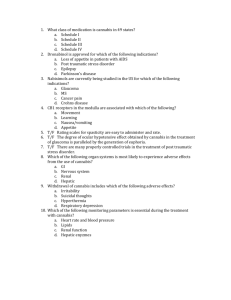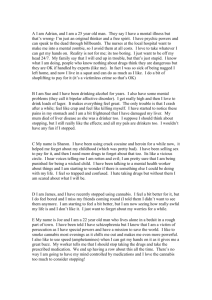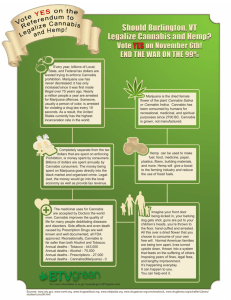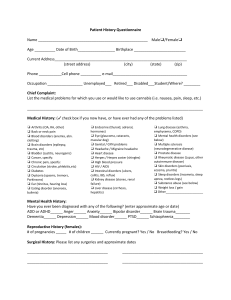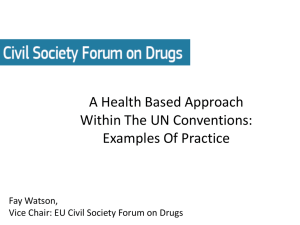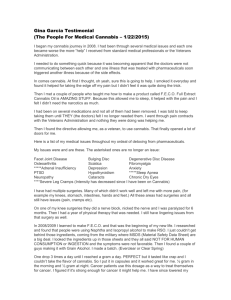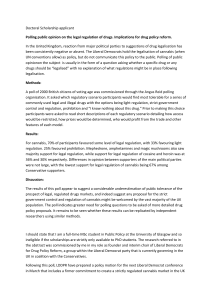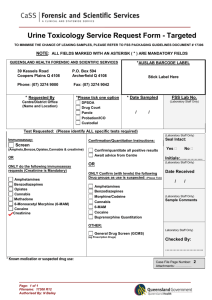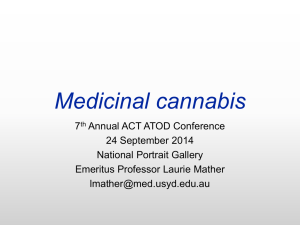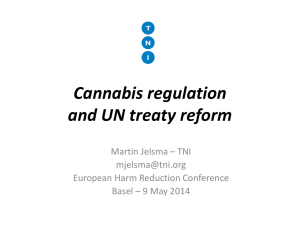Cannabis Britannica: The Rise and Demise of a
advertisement
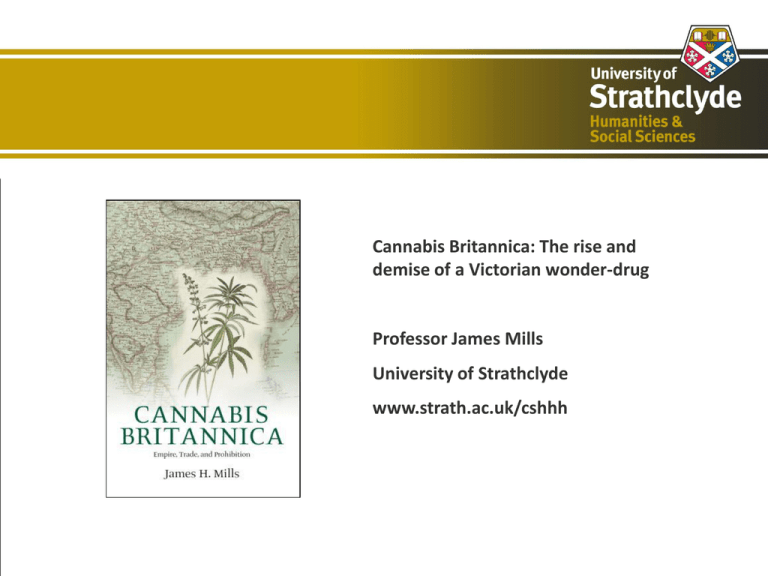
Cannabis Britannica: The rise and demise of a Victorian wonder-drug Professor James Mills University of Strathclyde www.strath.ac.uk/cshhh Why were cannabis preparations heralded as popular medicines in the middle of the 1800s and yet subjected to a Parliamentary condemnation and a Commission of Inquiry by the end of the century? Cannabis in south Asia cannabis sativa, cannabis indica, Indian hemp, marijuana Ganja is the dried flower head/smoked Bhang is the ground leaves and stalks/drunk Charas/Hashish is the dried exudation/ smoked. Majum is a green sweetmeat/ eaten Muddat is a preparation of hemp and opium Cannabis and British Medicine W. Ainslie, Materia Medica of Hindoostan and Artisan’s and Agriculturist’s Nomenclature, (Gvt Press Madras 1813) Majum: This electuary is much used by the Mahometans particularly the more dissolute who take it internally to intoxicate and ease pain and not unfrequently from an overdose of it, produce a temporary mental derangement. Cannabis and British Medicine WB O’Shaughnessy, Professor of Chemistry and Medicine in the Medical College of Calcutta, Government Chemical Examiner, Knighted in 1856 (4000 miles of telegraph line) ‘Powerful and valuable remedy in hydrophobia, tetanus, cholera and many convulsive disorders’ The Bengal Pharmacopoeia and General Conspectus of Medicinal Plants, (Calcutta 1844). Provincial Medical and Surgical Journal (BMJ) Royal Medico-Botanical Society, London February 22 1843 Cannabis and the House of Commons 1893/4 Mark Stewart MP 16 July 1891 To ask the Under-Secretary of State for India whether his attention has been called to the statement in the Allahabad Pioneer of the 10th May last that ganja 'which is grown, sold and excised under much the same conditions as opium', is far more harmful than opium, and that 'the lunatic asylums of India are filled with ganja smokers'. Cannabis and the House of Commons 1893/4 William Sproston Caine MP Here and there throughout the bazar are little shops whose entire stock consists of a small lump of greenish pudding, which is being retailed out in tiny cubes. This is another ‘Government monopoly’ and is a preparation of the deadly bhang or Indian hemp known in Turkey and Egypt as Haseesh, the most horrible intoxicant the world has yet produced Picturesque India: A handbook for European Travellers (1890) Indian Hemp Drugs Commission 1893/4 3 Indians, 5 British Officials 266 days, 8 volumes 1. Cannabis not cause crime. 2. Asylum statistics unreliable 3. Moderate use harmless 4. Excessive use may cause mental health problems. Conclusions i. The history of cannabis and the British extends beyond the 1960s into the nineteenth-century ii. For much of this history cannabis has been confused with other drugs like alcohol and opium iii. Attitudes and approaches towards it have often been shaped by wider agendas and prejudices
